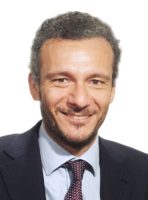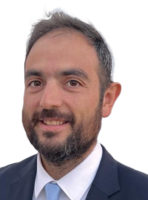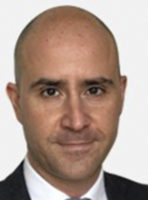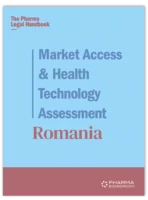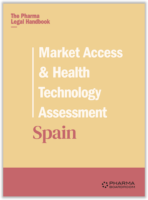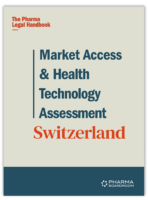Marketing, Manufacturing, Packaging & Labeling, Advertising
/ Italy
All about marketing, manufacturing, packaging & labeling, advertising in Italy. Prepared in association with Baker Mckenzie, a leading law firm in Italy, this is an extract from The Pharma Legal Handbook: Italy, available to purchase here for GB 119.
1. What is the authorization process for the marketing of new drugs, biologics, medical devices, over the-counter medications, and other medicinal products?
Please refer to the answer to Question 2 in Chapter 1.
2. What is the authorization process for the marketing of generic versions of these products?
Please refer to the answer to Question 6 in Chapter 1.
3. What are the typical fees for marketing approval?
Pursuant to art. 158 of the Pharma Code, applicable fees for marketing approval are established by a decree of the MoH after having heard the AIFA and are automatically updated on the basis of the Italian National Statistical Institute (“ISTAT”) of the cost of living. Updated fee are published on the AIFA’s institutional website. Applicable fees depend on several factors, including the type of medicinal product for which the marketing authorization is requested, the relevant strength, pharmaceutical form, etc., and may range from few to several tens of thousands of Euros.
4. What is the period of authorization and the renewal process?
Please refer to the answer to Question 5 in Chapter 1.
5. What are the requirements, if any, for post-approval pharmacovigilance?
Under the Pharma Code, the MAH must ensure a system to collect and maintain a record of suspected adverse events and equally ensure a safety reporting system to the AIFA. Specifically, the MAH shall set up a risk management system for each medicine, appoint a qualified person who shall be responsible for pharmacovigilance activities and notify his or her name to the AIFA. The pharmacovigilance activities may lead to the suspension or revocation of product approvals by the AIFA, which ensure compliance with the provisions of law inspecting the MAH premises, records and documents in relation to the pharmacovigilance activities covered. Moreover, according to the Pharma Code the MAH shall appoint a responsible person for distribution and a scientific service, which must be independent from the marketing department.
AIFA is competent for pharmacovigilance compliance and, to this end, has the power to perform inspections at the marketing authorization holders’ premises and access to their records and related documents.
6. Are foreign marketing authorizations recognized?
Foreign marketing authorizations are not recognized in Italy. It should be noted, however, that pursuant to the Decree of the MoH dated 11 February 1997 the same MoH may authorize a physician to import a medicine duly licensed in a country outside of Italy necessary to treat a patient if such an import is justified on the basis of objective exceptional criteria and provided that the relevant medicinal product is used in compliance with Italian law and in accordance with conditions of use authorized in the country of origin. Moreover, in case of shortage of medicine at a national level, the MoH can authorize the import of the same medicine available outside of Italy.
7. Are parallel imports of medicines or devices allowed?
Yes. With specific regard to medicinal products, the parallel import is subject to the AIFA’s prior authorization.
8. What are the restrictions on marketing practices such as gifts, sponsorships, consultancy agreements, travel and entertainment, or other incentives for healthcare organizations and individual medical practitioners?
a. Gifts
According to Art. 123 of the Pharma Code on advertising of pharmaceutical products (the principles of which also apply to medical devices), no gifts, pecuniary advantages or benefits in kind can be supplied, offered or promised to healthcare professionals (“HCPs”) with the exception of those of “negligible value” and that, in any case, are related to the activity performed by the relevant HCP / pharmacist. In this respect, the Guidelines on the Scientific Information adopted by the Conference of Regions and Autonomous Provinces fix the “negligible value” in a maximum annual amount of EUR 20.00 for pharmaceutical company for each HCP / pharmacist.
Furthermore, pursuant to Art. 170 of the Consolidated Text of Health Laws (Royal Decree No. 1265 of 27 July 1934 as amended), the HCP who inappropriately receives money or other benefits to inflate the number of drug prescriptions or other medical products for pharmaceutical use is punishable with the imprisonment of up to one year and with a pecuniary fine up to EUR 520.
If pecuniary advantages are offered to HCPs, the general rules regarding bribery would apply.
Additional rules on gifts to HCPs are provided for in the Code of Conducts adopted by Farmindustria (the Italian Association of Pharmaceutical Companies) and Confindustria Dispostivi Medici (the Italian Association of Medical Device Companies).
b. Sponsorships, travel and entertainment
Pursuant to Art. 124 of the Pharma Code, pharmaceutical companies may support congresses and events on topics related to the use of medicinal products provided that they obtain the AIFA’s prior authorization. Art. 124 above also provides that pharmaceutical companies may contribute to costs related to the participation of qualified HCPs in said congresses and event with respect to travel and accommodations, with the exclusion of accompanying persons. In this respect, hospitality cannot be extended to a period of time exceeding 12 hours prior to the beginning and/or following the end of the congress / event. Moreover, the characteristics of the hospitality must not prevail over the technical-scientific purposes of the event.
Further rules and restrictions on sponsorships, travel and entertainment are established in the Codes of Conduct adopted by Farmindustria (the Italian Association of Pharmaceutical Companies) and Confindustria Dispostivi Medici (the Italian Association of Medical Device Companies). By way of example, the Farmindustria’s Code of Conduct provides that, in case of rail transport, all travel classes are permitted with the exception of the Executive class, whereas, in case of flights, these must be exclusively in economy class. Exceptions apply with respect of international flights with a duration exceeding 6 hours, in which case it is possible to provide business class tickets only for speakers and moderators included in the official agenda of the event. All events must be held in appropriate venues that are conducive to the main purpose of the event, avoiding those that are known for their entertainment facilities or are ‘extravagant’. The organization or sponsoring of events taking place, or the provision of hospitality to participants, in resorts, vessels, manors located outside of the urban area, to farmhouses, golf clubs and spa facilities is not allowed. Moreover, seaside locations cannot be selected as a venue for an event from June 1 to September 30. The same prohibition applies to mountain locations from December 1 to March 31, as well as from July 1 to August 31.
c. Consultancy agreements
Under Italian law, consultancy agreements between pharmaceutical and medical device companies and HCPs are allowed. It should be noted, however, that pursuant to Art. 53 of Legislative Decree No. 165/2001, HCPs who are employed by a public hospital or entity cannot be entrusted with the performance of paid services, including consultancy agreements, unless they have obtained the prior authorization from the public hospital / entity they work for. In case the prescribed authorization is obtained, the beneficiary of the services must communicate to the relevant public hospital / entity the amount of the compensation paid to the HCP within 15 days from the payment date. In case of violation of the provisions of Art. 53 above, private persons are sanctioned with a pecuniary fine equal to twice the amount paid to the public employee.
Lastly, Legislative Decree No. 165/2001 prohibits former public employees (including HCPs formerly employed by a public hospital or entity) who, in the last three years of their employment relationship, have exercised authoritative or negotiating powers on behalf of a public administration from performing, during the three years following the termination of their employment relationship, any professional or work activity for the benefit of private persons in respect of whom such powers have been exercised. Agreements entered into in violation of the above-mentioned prohibition are null and void and private persons entering into said agreements shall be prohibited from negotiating with public administrations for the following three years and must return any possible compensation received in connection with the same agreements.
9. How is the manufacturing of medicines and devices regulated and by which agencies?
a. Medicinal products
Pursuant to Art. 50 of the Pharma Code, the manufacturing of medicinal products is subject to a prior authorization (“Manufacturing License”). The Manufacturing License is granted by the AIFA after having carried out an inspection aimed at verifying that the applicant possess, amongst other things, (i) suitable and sufficient premises, technical equipment and control facilities for the production and storage of medicines, and (ii) a so-called Qualified Person responsible for verifying that each batch of medicinal products is manufactured and checked in compliance with the applicable legislation and in accordance with the requirements of the MA and, with respect to medicinal products coming from non-EU countries, that each production batch has undergone a full qualitative analysis, a quantitative analysis of at least all the active substances and all the other tests or checks necessary to ensure the quality of medicinal products in accordance with the requirements of the MA. The Qualified Person must be qualified and reliable. Qualification must be substantiated by (i) holding a license to practice as a chemist, pharmacist or physician, have a university diploma in the relevant field, (ii) at least two years of practical experience in the field, and (iii) being licensed to exercise his/her profession and enrolled with the relevant professional register. Manufacturing Licenses are normally granted within 90 days for the filing of a complete application
b. Medical devices
The production of medical devices does not require a manufacturing license. However, when placing their devices on the market or putting them into service, manufacturers must ensure that they have been designed and manufactured in accordance with the requirements of the MDR and/or IVDR, as applicable.
10. Are local manufacturing requirements compatible with Good Manufacturing Practices (GMPs) as defined by the U.S. Food & Drug Administration and/or the European Medicines Agency?
Yes. Under the Pharma Code, manufactures of medicinal products must comply with the principles and guidelines of good manufacturing practice for medicinal products as laid down by the same Pharma Code as well as with the other directives issued at the EU on this matter.
11. What is the inspection regime for manufacturing facilities?
a. Medicinal products
Under the Pharma Codes, the AIFA is responsible for ensuring that all legislative provisions on medicinal products are complied with. To this end, the AIFA carries out period inspections, including unannounced inspections, on production plants and other premises where medicines and active substances are manufactured, imported, controlled and stored and has the power to take samples of medicinal products and to review and take copy of all relevant documents. In performing these activities, the AIFA may request the support of the National Institute of Health, the National Institute for Occupational Safety and Prevention, Local Health Authorities and of other public bodies.
Moreover, pursuant to Art. 71 of the Pharma Code, manufacturers are required to carry out continued self-inspections in order to check the application of and compliance with Good Manufacturing Practices and to adopt the necessary corrective actions or preventive measures. Self-inspections, as well as all subsequent corrective actions, must be recorded and the relevant records must be kept for a period of at least 10 years.
b. Medical devices
In Italy, the MoH is the national authority responsible for enforcing the MDR and the IVDR and can perform periodic inspections, require manufacturers to provide justifications, and implement corrective measures.
In particular, Art. 93 of the MDR entrusts the competent authorities of the EU member States (in Italy, the MoH), with the task of performing appropriate checks on the conformity characteristics and performance of devices including, where appropriate, a review of documentation and physical or laboratory checks on the basis of adequate samples. To this end, the MoH may carry out both announced and, if necessary, unannounced inspections of the premises of economic operators and has the power to confiscate, destroy or otherwise render inoperable devices that present an unacceptable risk where it deems it necessary to do so in the interests of the protection of public health.
12. Are manufacturing facilities open for inspection by foreign inspectors or third-party inspectors as authorized by the FDA/EMA?
In Italy, manufacturing facilities are normally inspected by the AIFA, which is the national supervisory authority for manufacturing and is responsible for verifying, also on behalf of the EU, that manufacturers satisfy the requirements concerning manufacturing laid down in the Italian and EU legislation.
That said, it is worth mentioning that, pursuant to Art. 19 of Regulation (EC) No. 726/2004, in case the European Commission is informed of serious differences of opinion between Member States as to whether a manufacturer established within the EU satisfies the requirements concerning manufacturing, the Commission may, after consultation with the Member States concerned, request an inspector from the supervisory authority to undertake a new inspection of the manufacturer. In such a case, the inspector in question is accompanied by two inspectors from Member States which are not party to the dispute or by two experts nominated by the Committee for Medicinal Products for Human Use.
13. What are the requirements for storage, packaging, and handling of medicines and devices and their constituent components?
The requirements for storage, packaging, and handling of medicines and devices vary depending on the concerned drugs. In any case, whoever stores medicines must obtain a prior authorization from the Italian Regional Authority of the place where the warehouse is located.
14. What information must be included in medicine and device labeling?
a. Medicinal products
For medicinal products, the information to be reported in the labelling are identified in Art. 73 of the Pharma Code. These include, the name of the medicinal product followed by the strength and the pharmaceutical form; a statement of the active substances expressed qualitatively and quantitatively per dosage unit or according to the form of administration for a given volume or weight, using their common names; the pharmaceutical form and the contents by weight, by volume or by number of doses of the product; the method of administration and, if necessary, the route of administration; a special warning that the medicinal product must be stored out of the reach and sight of children; the expiry date in clear terms (month/year); special storage precautions, if any; the name and address of the marketing authorization holder; the number of the authorization for placing the medicinal product on the market; the manufacturer’s batch number; the price of the medicinal product and whether it is reimbursed by the NHS.
Specific rules apply to the labelling of herbal medicinal products, medicinal products containing radionuclides and homeopathic medicinal products.
b. Medical devices
According to the MDR, the label shall bear, amongst other things, the following particulars: the name or trade name of the device; the details strictly necessary for a user to identify the device, the contents of the packaging and, where it is not obvious for the user, the intended purpose of the device; the name, registered trade name or registered trade mark of the manufacturer and the address of its registered place of business; where applicable, an indication that the device contains or incorporates a medicinal substance, including a human blood or plasma derivative, or tissues or cells, or their derivatives, of human origin, or tissues or cells of animal origin, or their derivatives; the lot number or the serial number of the device; the Unique Device Identification carrier; the time limit for using or implanting the device safely; an indication of any special storage and/or handling condition that applies; warnings or precautions to be taken that need to be brought to the immediate attention of the user of the device, and to any other person; where applicable, an indication that the device is intended for single use and whether it has been reprocessed; if the device is custom-made, the words “custom-made device”; and for active implantable devices, the serial number, and for other implantable devices, the serial number or the lot number.
15. What additional information may be included in labeling and packaging?
a. Medicinal products
Under Art. 73 of the Pharma Code, in addition to mandatory information, the label may include, upon notification to the AIFA, the name of the person that, based on a specific agreement with the relevant MAH, actually markets the medicinal product throughout the Italian territory (i.e. the exclusive distributor / concessionaire).
b. Medical devices
Under Italian law, there no specific provisions on this point.
16. What items may not be included in labeling and packaging?
a. Medicinal products
Under Italian law, there no specific provisions on this point.
b. Medical devices
Pursuant to Art. 7 of the MDR, neither the labelling nor the instructions for use may include text, names, trademarks, pictures and figurative or other signs that may mislead the user or the patient with regard to the device’s intended purpose, safety and performance by ascribing functions and properties to the device which the device does not have; create a false impression regarding treatment or diagnosis, functions or properties which the device does not have; suggest uses for the device other than those stated to form part of the intended purpose for which the conformity assessment was carried out.
17. What are the restrictions and requirements for the marketing and advertising of medicines and devices?
a. Marketing
As a general rule, only duly authorized medicinal products and medicinal devices bearing the CE marking can be marketed in Italy.
Exceptions to this rule apply in very limited cases. With respect to medicinal products, the most remarkable example of these exceptions are “compassionate use programs” which provide for the use of unauthorized medicines that are expected to help patients with life-threatening, long-lasting or seriously debilitating illnesses, which cannot be treated satisfactorily with currently authorized medicines . Compassionate use programs are coordinated and implemented by Member States, which set their own rules and procedures. In Italy, the Decree of the Ministry of Health dated 7 September 2017 allows the compassionate use of medicines for (1) patients suffering from rare or life-threatening diseases, if no other valid therapeutic alternative is available; (2) patients who have already been treated with clinical benefit in a similar clinical trial; or (3) patients who cannot be included in a clinical trial .
Similarly, in cases of exceptional need and urgency, in the interest of a single patient, the MoH can authorize the compassionate use of medical devices bearing no mark because the conformity assessment has not been conducted or completed. Compassionate use requires MoH authorization and the approval of the relevant Ethics Committee.
b. Advertising and promotion
Regulatory framework
The advertising and promotion of medicines and medical devices is governed by national legislation, as well as by regional legislation (i.e., laws and regulations issued by the various Italian regions) and industry codes.
In detail, the following pieces of legislation apply to the advertising of medicines and medical devices in Italy:
a) the Pharma Code;
b) Legislative Decree No. 46/1997, implementing Directive 93/42/EEC on medical device; and
c) The Decree of the MoH dated 23 February 2006 on medical devices advertising.
Specific instructions on advertising of medicines and medical devices through different communication channels, including the internet, SMS/MMS and social networks, are established by various guidelines issued by the MoH.
At a regional level, the promotion of medicines and medical devices to HCPs is regulated by the “Guidelines for regional regulations regarding scientific information relevant on medicines” dated 26 April 2006, as well as by the guidelines issued by each Italian Region.
Lastly, additional rules on advertising of both medicines and medical devices are also set out in the codes of conduct adopted by national and international industry associations, such as the Farmindustria and the EFPIA Codes for medicines, and the Confindustria Dispositivi Medici and the MedTech Europe Codes for medical devices. Said codes only apply to pharma and medical devices companies that are members of such industry associations.
Advertising to the general public
Advertising to the general public of prescription medicines or medicines containing psychotropic or narcotic substances is forbidden. The prohibition on advertising to the general public also applies to medicines that are reimbursed, even partially, by the NHS. The distribution of medicines to the public for promotional purposes is also prohibited.
In publications, radio or television broadcasting, or any non-promotional messages to the general public, it is prohibited to mention the name of a medicinal product in a context where this results in the promotion of the consumption of the product.
Similarly, it is forbidden to advertise to the general public custom-made medical devices and medical devices that must be ordered by, chosen by or ultimately used with the assistance of, an HCP.
The advertising of medicines and medical devices that do not fall within one of the above-mentioned categories is subject to prior authorization by the MoH. This authorization is implicitly granted if the MoH does not raise any objection within 45 days from the date of the filing of the relevant application.
Promotion to HCPs
Broadly speaking, the promotion of medicines and medical devices to HCPs is governed by concerns for accuracy in information, adequacy in education and training of medical sales representatives, and the avoidance of undue influence over HCPs’ decision-making processes (including purchasing decisions by public entities). To this end, there are a number of restrictions on how information can be presented to HCPs with respect to seminars, panel discussions, promotional events and the like.
Any advertising of medicines to persons qualified to prescribe or supply such products shall always include the summary of the product characteristics authorized at the time the advertising is disseminated, specify the supply classification of the same product and the sale price and the conditions for its reimbursement by the NHS, if any.
The documentation on the medicinal product must be filed with the AIFA and can be supplied to the HCP after the expiry of a term of 10 days from the filing.
18. Where can medicines and devices be sold or delivered? Can medicines and devices be sold or delivered via post?
In Italy, medicinal products can be delivered to patients by pharmacies, hospitals or similar healthcare structures. The applicable supply regime is established by the AIFA’s Technical-Scientific Committee taking into consideration the issues relating to the safe use of the relevant medicinal products.
As a general rule, medicinal products subject to medical prescription (i.e. Class A, Class H and certain Class C medicines) can only be provided to patients by territorial and hospital pharmacies. Pursuant to Art. 32 of Law Decree 201/2011, Class C medicinal products not subject to medicinal prescription can also be sold by para-pharmacies and retail businesses set up in Municipalities with more than 12,500 inhabitants. Moreover, since 2015, prescription-free medicinal products, including over-the-counter products, can also be sold online. It should be noted, however, that the online sale of prescription-free medicinal products can only be performed by those pharmacies, para-pharmacies and retail businesses which have obtained an ad hoc prior authorization from the local competent health authority.
With respect to medical devices, the existing legislation does not specifically regulate the relevant sales channel, with the consequence that all medical devices, including those whose use requires the assistance of HCPs, can be sold by pharmacies, para-pharmacies, orthopaedic stores and even directly by the relevant manufacturers. Moreover, Art. 6(1) of the MDR provides that medical devices can be offered online by information society services provided that the same devices complies with the provisions of the same MDR. As neither the MDR nor the Italian legislation currently regulate or limit usable online sales channels, it follows that medical devices can be offered online through e-commerce sites belonging to manufacturers, distributors or importers as well as market places. Also, the online sale of medical devices does not require any authorization and can be performed both with respect to legal and natural persons, without any distinction between HCPs and the general public. It should be noted, however, that the above is without prejudice to the rules and restrictions applicable to the advertising of medicinal devices to the general public.
19. What are the restrictions and requirements for electronic marketing and advertising via email, by Internet, social media, and other channels?
a. Electronic marketing
As regards medicines, only prescription free medicinal products can be sold online and only by pharmacies, para-pharmacies and retail businesses which have obtained an ad hoc prior authorization from the local competent health authority. For medical devices, there are no similar restrictions or authorization requirements.
b. Electronic advertising
Advertising to the general public
Under Italian law, it is prohibited to advertise to the general public prescription-only medicines, drugs containing psychotropic or narcotic substances and medicines reimbursed, even partially, by the NHS as well as custom-made medical devices and medical devices that must be ordered by, chosen by or ultimately used with the assistance of, an HCP, whereas, for all other products, the dissemination of advertising messages to the general public is subject to the prior authorization of the MoH.
Without prejudice to the foregoing, specific instructions on advertising of medicines and medical devices to the general public through different communication channels, including emails, the internet and social networks are established by various guidelines issued by the MoH (the “Guidelines”). According to the Guidelines, it is possible to disseminate advertising messages via email provided that, at the time of the submission of the relevant request for authorization, the applicant company declares that the relevant messages will only be sent after having obtained the consumer’s consent and that the latter may freely revoke at any time his/her consent and request the cancellation of his/her data. Similarly, in case of advertising messages disseminated through websites, the applicant must include in the relevant request for authorization the web address where the advertisement will be published. Also, the concerned company must clearly identify in the same websites the advertising message(s) and include and include a message specifying that the MoH’s authorization only refers to the same message(s).
Stricter rules apply to the dissemination of adverting messages through Social Networks as the use of these channels is regarded suspiciously by the MoH. Indeed, as clarified by the same MoH in its Guidelines, the advertising message authorized by the MoH has a static nature, meaning that it cannot be modified neither by the holder of the relevant product nor by any other person. Considering that the use of Social Networks, which allow users to express their opinions, to advertise medical devices compromises said static nature, the MoH resolved to allow the advertising of medical devices through Social Networks only with respect to certain hosting providers (i.e. Facebook, YouTube and Instagram) and to subject the same advertising to specific conditions and limitations identified in the Guidelines.
Promotion to HCPs
The dissemination of information about medicine and medical devices to HCPs via email and/or the internet is permitted without the MoH’s authorization. However, with specific regard to the internet, the spread of this information must be on websites or on web pages only intended to be viewed by HCPs. To this end, companies must inform the users through a specific disclaimer that the information provided on the sites are only addressed to HCPs.
20. May medicines and devices be advertised or sold directly to consumers?
Please refer to the answers to Question 17, 18 and 19 above.
21. How is compliance monitored?
Compliance with rules governing the adverting of medicines and medical devices is monitored by the MoH with the support of the Anti-adulteration and Health Units of the Carabinieri Corp.
22. What are the potential penalties for noncompliance?
Companies that violate the provisions of Italian law regarding the promotion of medical devices are punished with administrative fines up to €15,493.71. In addition, the MoH can order the immediate cessation of the advertising and require the infringing party to rectify or clarify the advertising in accordance with the instructions provided by the same MoH.
In the case of misleading advertising, the Italian Antitrust Authority may order the infringing party to stop any illegal activity, require the infringing party to rectify the relevant statements and publish them at the latter’s expenses, and issue administrative fines up to €500,000.
As for pharmaceutical products, in case of any violation of the rules on advertising to the general public, Article 118 of the Pharma Code provides that the MoH can order the immediate cessation of the advertising and the dissemination, at the expense of the infringing party, of a corrective statement in accordance with the instructions provided by the MoH, unless the MoH decides to proceed by its own initiative. The company is also subject to a pecuniary fine ranging up to €15,600, pursuant to Article 148 of the Pharma Code.
In accordance with Articles 127 and 148 of the Pharma Code, the same sanctions apply in case of breach of the requirements set forth for the advertising to persons qualified to prescribe or supply medicinal products. For products that are reimbursed by the NHS, the violation can also be punished with the suspension of the medicinal product from the reimbursement regime for a period ranging from 10 days to two years. The suspension is adopted after the notification of the violation to the MAH that has the right to file its observations within 15 days from the notification.





